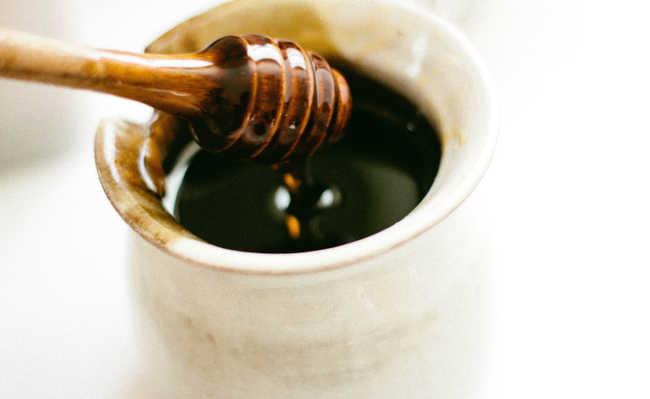What is decaffeinated coffee? Its make bad?
Decaffeinated coffee has benefits similar to regular coffee without increasing anxiety and acid reflux

Nathan Dumlao image in Unsplash
Decaffeinated coffee is usually an alternative for those who have problems with caffeine, such as increased anxiety, but still don't give up on the taste of the drink. But does he do it well? Understand:
- Coffee without anxiety? Mix cocoa!
- Caffeine: from therapeutic effects to risks
What is decaffeinated coffee and how is it made?
Unlike what many people think, decaffeinated coffee is not 100% caffeine free, but contains only 3% of the substance, compared to regular coffee.
To remove 97% of caffeine, water, organic solvents and/or carbon dioxide are used (see study about it here: 1). Coffee beans are mixed with these substances and when the caffeine is removed, the solvents are removed.
This process takes place before the beans are roasted and ground, so the nutritional value of the seed remains the same as that of regular coffee, although the flavor may be a little milder depending on the method used.
The amount of caffeine left over in decaffeinated coffee, prepared in the American style (more watery) is only three milligrams per cup (see study about it here: 2). Another study found that the amount of caffeine found in a cup (about 180 ml prepared American-style) of decaffeinated coffee can range from zero to seven milligrams (see study about 3).
In comparison, an average cup of coffee brewed American-style can contain 70 mg to 140 mg of caffeine, depending on the type of coffee, method of brewing and cup size (see the study here: 4).
Thus, even if decaffeinated coffee is not completely caffeine free, the amounts that remain are negligible.
Contains antioxidants and nutrients
Coffee, even the common one, is not as villainous as some people think. In fact, it is the biggest source of antioxidants in the Western diet (see studies about it here: 5, 6, 7).
Discover the benefits of antioxidants and common coffee in the articles: "Antioxidants: what they are and in which foods to find them" and "Eight incredible benefits of coffee".
Decaffeinated coffee is also rich in antioxidants, despite having an amount 15% less than regular coffee (see studies about it here: 8, 9, 10, 11).
This loss of antioxidants takes place in the decaffeination process. But the drink still maintains the same types of antioxidants as common coffee, which are hydrocinnamic acids and polyphenols (see studies about it here: 1, 12).
In addition to antioxidants, decaffeinated coffee contains some nutrients. In a cup prepared American-style there is about 2.4% of the recommended daily intake (RDI) of magnesium, 4.8% of potassium and 2.5% of niacin, or vitamin B3 (see study on this: 1) . In the Brazilian style of coffee preparation, which is stronger, this amount is certainly greater.
Benefits of decaffeinated coffee
Type 2 diabetes, liver function and premature death
The consumption of coffee, regular or decaffeinated, has been associated with a reduction in the risk of type 2 diabetes. Each daily dose can reduce the risk of this disease by up to 7% (see studies about it here: 17, 18, 19, 20, 21 ).
- Diabetes: what it is, types and symptoms
This suggests that components other than caffeine are responsible for these protective effects (see study on this: 22).
The effects of decaffeinated coffee on liver function are not as well studied as those of regular coffee. However, a large observational study concluded that there is a relationship between decaffeinated coffee consumption and reduced liver enzyme levels, suggesting a protective effect for the liver.
- Tips to avoid liver problems
Consumption of decaffeinated coffee has also been associated with a small but significant reduction in the risk of premature death, as well as death from stroke or heart disease (see study 23).
Prevents aging and neurodegenerative diseases
Both regular and decaffeinated coffee have protective effects on brain health (see study about it here: 24).
Studies with human cells have shown that decaffeinated coffee protects neurons, which may prevent the development of neurodegenerative diseases such as Alzheimer's and Parkinson's (see studies here: 25, 26).
Reducing heartburn symptoms and reducing the risk of rectal cancer
A common side effect of drinking coffee is heartburn or acid reflux. Consuming decaffeinated coffee can be a way to alleviate this unwanted effect, as it causes less acid reflux than regular coffee (see studies about it here: 27, 28).
The consumption of two or more cups of decaffeinated coffee a day has also been associated with an up to 48% lower risk of developing rectal cancer (see studies about it here: 22, 33, 34).
Which one should I choose?
Coffee is primarily known for its stimulant effects. And that's due, in a significant way, to caffeine. This substance is still considered responsible for effects such as:
- Improved mood, reaction time, memory and brain function (see the studies about it here: 29, 30, 31);
- Increased metabolic rate and fat burning (see the studies about it here: 32, 33, 34);
- Better athletic performance (check the studies about it here: 35, 36, 37, 38);
- Reduced risk of mild depression and suicidal thoughts in women (see studies about it here: 39, 40);
- Much lower risk of liver cirrhosis or end-stage liver damage (see studies about it here: 41, 42, 43).
Therefore, when consuming decaffeinated coffee, you will most likely not get these benefits mentioned. However, it has the advantages of not causing anxiety, increased acid reflux and insomnia, as is the case with common coffee for some people.
In addition, it can be an alternative for patients taking prescription drugs that may interact with caffeine (see study about it here: 3).
Adapted from Adda Bjarnadottir - Healthline and Pubmed










